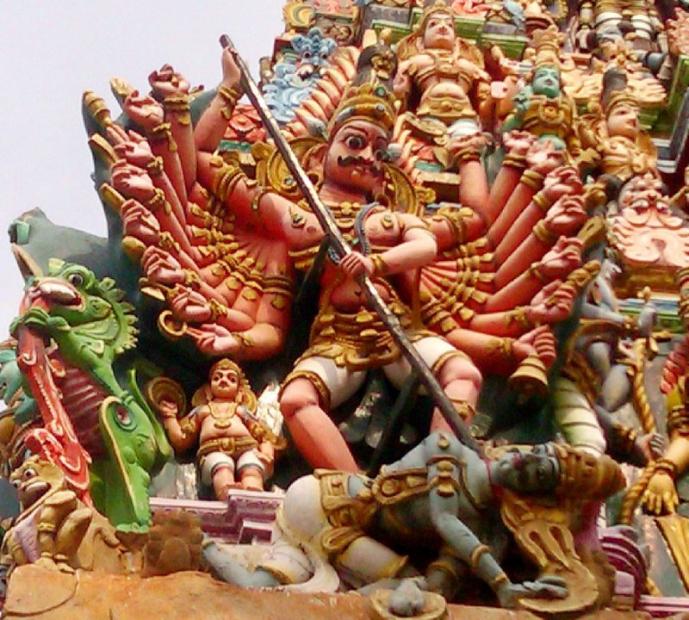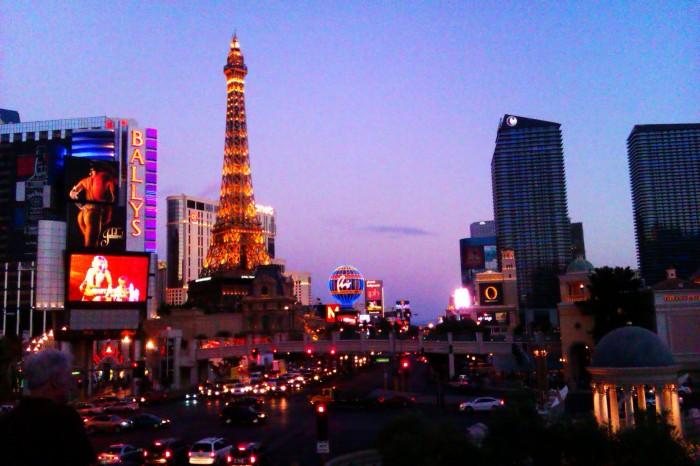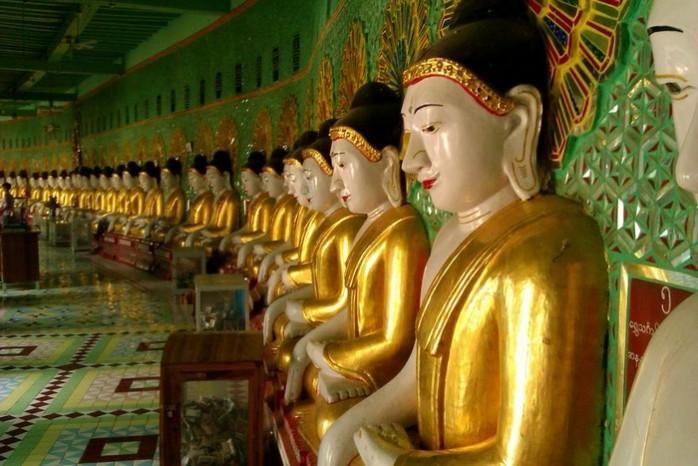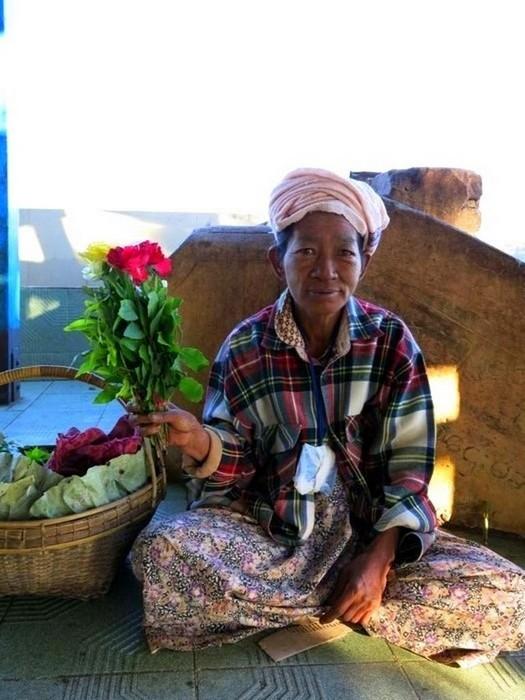This is slightly disconcerting, because as I write this, I have an audience of hotel employees standing behind me watching. I’m in Moulmein where there is simply no internet, and I’ve yet to see a mobile phone.
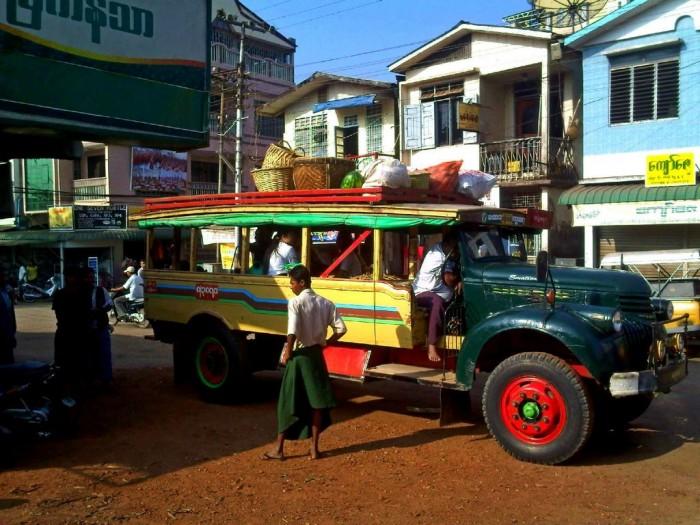
The buses are old Chevy trucks with a roof built over the load area, and about one person in three wants to say hello. The OK Hotel (yes that’s what somebody decided to call it – personally I would have gone for Superb Hotel, but maybe they were being honest…), has just been certified for foreigners and they are very attentive, but totally untrained. It took a little while to realise when I arrived that the reason for no power in the room is that Moulmein gets power from 5pm to 7am, and the hotel is loathe to fire up its generator for a couple of guests paying $20 a night.
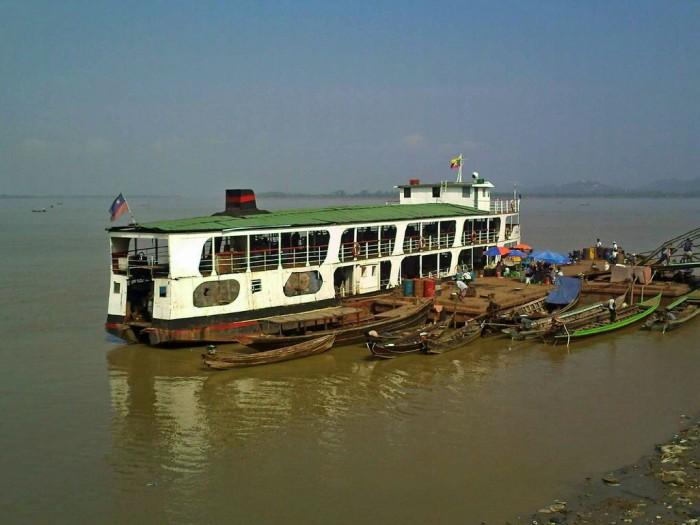
But I’m compensated as I look out over a stupendous river delta, barely able to see the other side, with the occasional ferry (the like of which you sometimes read about sinking with much loss of life), and all manner of human, animal, and freight cargo being offloaded into motorised rickshaws, or just onto the seat of bikes, to be pushed into the market which is right behind the hotel.
I took Lonely Planet’s recommendation for a meal last night and had a hundred offers for a ‘taxi’. Here, this means a small motorbike. At least it got me there very efficiently, and the place served a fine chicken curry even though it was just a hole in the wall. All requests for tea fall on deaf ears and I realised today that it’s because you get it in a thermos on the table with the food, included in the price.
Moulmein was the British capital for several decades in the mid-1800’s and served as a centre for teak exports – and doubtless opium too which was the main exchange with the Chinese for tea. They got a little upset with having a large part of their population addicted by a foreign power and protested, so the British launched the Opium Wars, won, and got Hong Kong (as well as the ability to keep being the drug dealer of choice for all China). Not a pretty part of history… And it was in Moulmein that George Orwell spent many years, and Kipling just three days, but during that time penned his once famous poem that evoked the exotic Far East for so many Brits. So much for that – I’ve seen two tourists on the train and precisely zero in Moulmein.
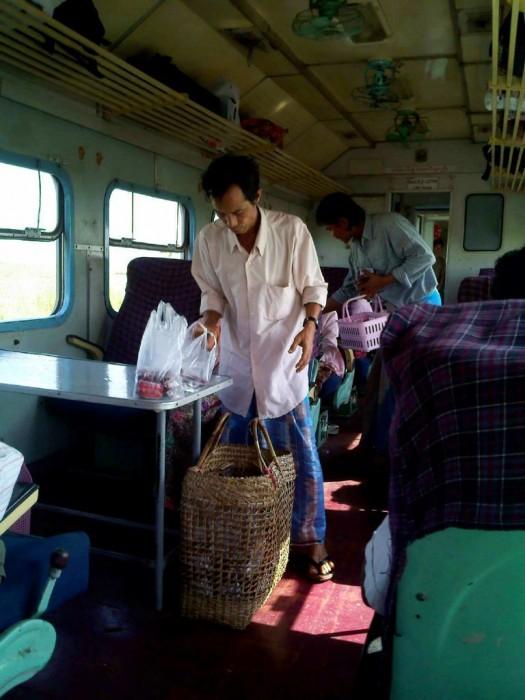
Now the train was yet another thing. Pre-dawn railway stations waking up in this part of the world are fascinating. You catch people going about their daily tasks without concern, and the noise and light build almost in tandem. Upper Class has seats that were once padded, that once reclined in a controlled way, that rotated to see the view, had tray tables, and had access to ceiling fans and wind up windows. Most of those features clearly gave up functioning long ago and have been replaced by workarounds. The tray tables are now held up by anti-moccassars, the windows are held open by two sturdy metal rods that latch under the bottom of the window, so there are only two conditions – fully open or fully closed, and the seats simply recline of their own free will. I think the carriages were built in China about 30-40 years ago. In fact much of the Burmese infrastructure seems to comprise Chinese cast-offs. As for the railway, it starts off with multi tracks and suburban stations and commuter trains, but after about an hour that disappears and we branch off the main Yangon-Mandalay line to head northeast and then south, skirting the Irawaddy delta and the Andaman Sea. At this point, it is a one track line with passing places using the old ‘baton’ system to control traffic (there is one stick and you get given it when entering a single track section; you may only travel that section if you have the stick; if not, you wait until the train coming the other way arrives and hands it over to you). The tracks are so bad that the engine picks up a truck to push along in front carrying replacement rails, and the bouncing is so severe that the carriages regularly bottom out on their springs. At this point I had decided to hang out of a doorway (something I haven’t done in a couple of decades), and had I not bent my knees, I think I would have broken an ankle from the huge jolts when the carriage reaches the limit of its springs.
And so, after crossing a road/rail bridge across a monster river, we arrive in Moulmein.
The following morning brings a walk around the market with all the usual local colour and life, plus the standard nutter who decides to take a shine to me, though I eventually cast him off. I did indeed get to the “old Moulmein pagoda” written of by Kipling, and got back in good time to get a trishaw taxi across town to the boat dock for Hpa_An. Not that anybody was going to own up to where the dock was without a great deal of questioning and debate.
With some apologies, you can read or skip Kipling (only 3 verses of it!):
By the old Moulmein Pagoda, lookin’ lazy at the sea,
There’s a Burma girl a-settin’, and I know she thinks o’ me;
For the wind is in the palm-trees, and the temple-bells they say:
“Come you back, you British soldier; come you back to Mandalay!”
Come you back to Mandalay,
Where the old Flotilla lay:
Can’t you ‘ear their paddles chunkin’ from Rangoon to Mandalay?
On the road to Mandalay,
Where the flyin’-fishes play,
An’ the dawn comes up like thunder outer China ‘crost the Bay!
But that’s all shove be’ind me — long ago an’ fur away,
An’ there ain’t no ‘busses runnin’ from the Bank to Mandalay;
An’ I’m learnin’ ‘ere in London what the ten-year soldier tells:
“If you’ve ‘eard the East a-callin’, you won’t never ‘eed naught else.”
No! you won’t ‘eed nothin’ else
But them spicy garlic smells,
An’ the sunshine an’ the palm-trees an’ the tinkly temple-bells;
On the road to Mandalay . . .
I am sick o’ wastin’ leather on these gritty pavin’-stones,
An’ the blasted Henglish drizzle wakes the fever in my bones;
Tho’ I walks with fifty ‘ousemaids outer Chelsea to the Strand,
An’ they talks a lot o’ lovin’, but wot do they understand?
Beefy face an’ grubby ‘and —
Law! wot do they understand?
I’ve a neater, sweeter maiden in a cleaner, greener land!
On the road to Mandalay . . .
Ship me somewheres east of Suez, where the best is like the worst,
Where there aren’t no Ten Commandments an’ a man can raise a thirst;
For the temple-bells are callin’, an’ it’s there that I would be —
By the old Moulmein Pagoda, looking lazy at the sea;
The riverboat was right out of fiction. Two wooden decks held together pretty precariously with nails, wire, and string. A corrugated iron roof, and a wheelhouse at river level at the very front with one of those really old repeater dials for sending information to the engine room about 20 feet back – complete with the great bells you get when they go ‘Full ahead’ – ‘Aye, aye Cap’n’, and so on.
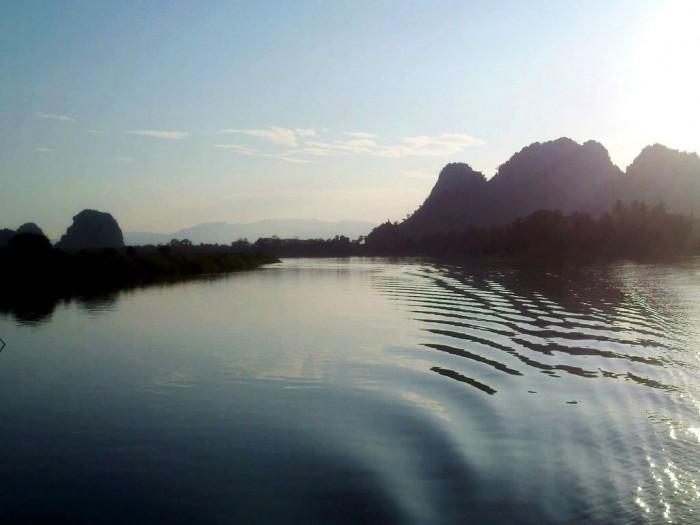
It was said to leave at noon, scheduled to leave at 12:30 and actually left at 1:15. Nobody was in a rush anyway. Got chatting to some Dutch travelers and exchanged useful info as they were heading East and I was going West. The river is massively wide and we chug along following an erratic course. Either there are sandbanks or the captain is drunk – which is a distinct possibility having seen two of the crew pour about half a mug of whisky each. We pick up passengers along the way by the simple expedient of driving towards the shore, running aground on the mud, and pushing out a gangplank. Then full reverse and some right and left rudder and we seem to get off again. After some time, mountains loom into view. One huge one with a pagoda on top (about 1,000 metres up steps to the top), but mostly limestone outcrops which look like the bays in Thailand and Vietnam and southern China. With the sun gradually sinking in the west, the river with no traffic but us, the mountains and rocks, and rice paddies, it is the archetypal view of Asia…
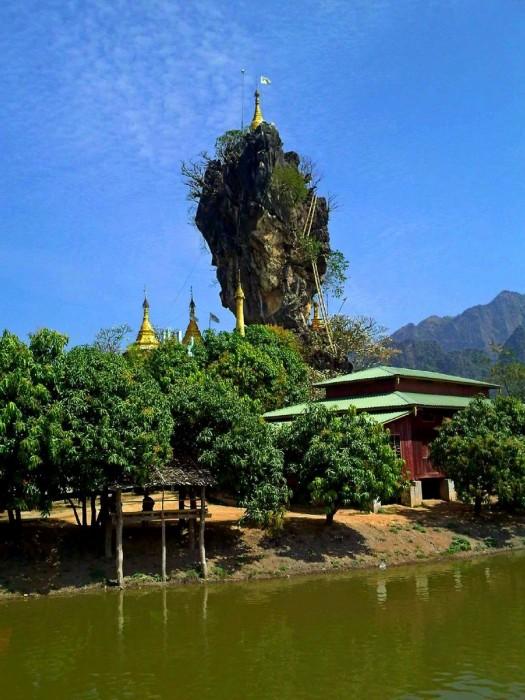
And so we arrive at Hpa-An just in time for me to get to the hotel before sunset. Huge room – no furniture except for a bed (but two packaged toothbrushes).
The next day the hotel found me a tuk-tuk driver who was even older than me. These things work on the smell of an oily rag but occasionally they have to squeeze a gallon into the tank. Up to this point I had assumed that the roadside places with old scotch bottles on display filled with reddish or yellowish liquids were local booze outlets. But it seems these are the gas stations. Decant the bottles into a gallon metal jug, bring large funnel, place funnel into bike tank, and pour. Not really very safe, but it works.
The roads leave quite a bit to be desired and an unsprung trailer assembly is ok as long as you are prepared for the bumps. I was doing pretty well until a huge one nearly took out a kidney. It’s still mightily sore some five days later. And the purpose of all this tuk-tuking around is to see some amazing pagodas, buddhas, and wall carvings, all set out in limestone caves – or in one case a cavern so huge that you could possibly have put a football pitch in it. Totally unlike anything I have seen before, and as a bonus, my driver took me to see sunset over the river from the pagoda in town – very kind.
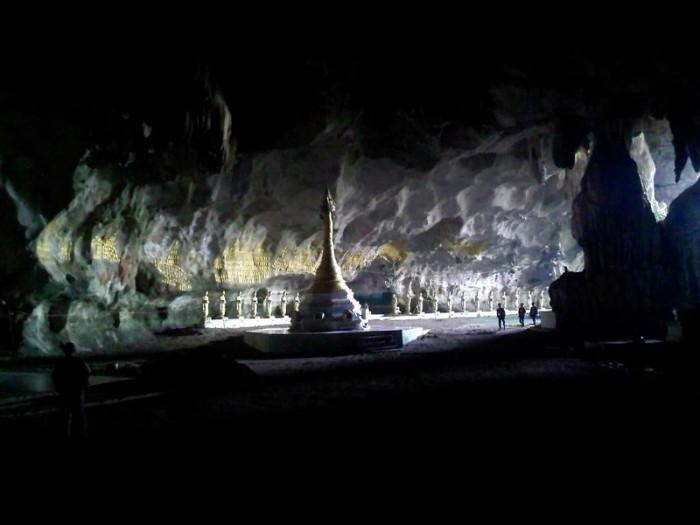
I’ve been searching for Burmese food but have really only located Indian and semi-western (oh and one Hainanese), but tonight I was in luck – thanks to Lonely Planet. Pork curry and dried fish curry (which really does taste like the smell of fish drying out – like smelly kippers). Rice on the side, tea, and a bottle of water for $2. Really the best food is in the cheapest places.
And then while wandering back to the hotel, I saw through a doorway, a row of about 12 monks – all young and all seated and having fun. I looked more closely and found they were glued to 6 tv screens on the opposite wall, engaged in Playstation of all things! What a weird sight.
Well now and again you do get a ride from hell, and the 8 hour bus trip back to Yangon was just such. I was told it was a ‘new bus’; just 2 months old; from Korea; ‘a very pretty bus’. And that it left at 7am. Well it was new – once. I guess it was new to Myanmar. And it did leave at 7am – from the bus station; but half an hour later from where I was catching it, by which time it was seething with humanity. I’d been sold a ticket for the middle back row so that the ‘big foreigner’ could stretch out. This would have been fine if they hadn’t decided to accommodate the oversold seats by placing plastic stools all the way down the aisle, thus robbing me of any extra legroom at all! And it had aircon – but they didn’t turn it on until we were 15 minutes from Yangon by which time we were all pretty gross.
I arrived back at my old hotel to witness the owner carrying elastic-banded bricks of 1,000 kyat notes (worth $1 each) to a bill counting machine that I had only previously seen in a bank. It’s not only that there are no ATMs or credit cards for we tourists, but there are no functioning bank accounts for local people, so everything is in cash and he needs to hold at least $5000 in the equivalent of $1 bills just to function. What a task!
One more trip to the Shwe Dagon the following day has me convinced it is the most amazing religious site on earth and that I will be back.
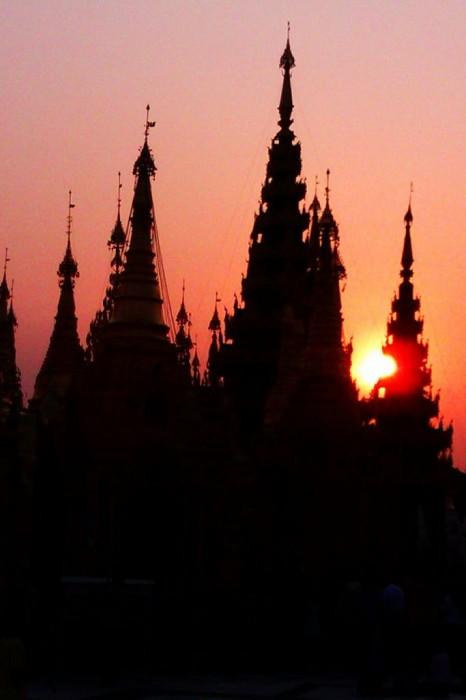
Suggested Reading
[otw_is sidebar=otw-sidebar-2]
